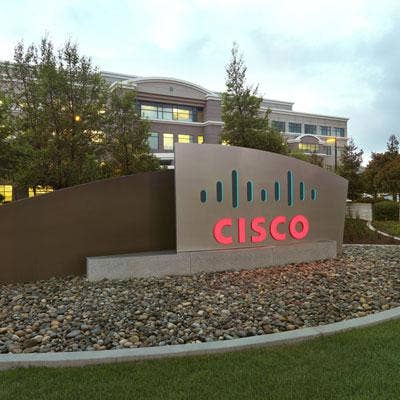Cisco Champions Public Cloud Choice And Partner Flexibility With New Cisco Container Platform

Cisco Systems is moving to one-up competing vendors in the burgeoning market for Kubernetes container technology with the introduction of a turnkey system designed to allow for deployment and management of containerized applications across public and private clouds.
Called the Cisco Container Platform, the system gives partners a clear path into lucrative application lifecycle management and other services sold on a recurring revenue basis, and as the platform expands, those opportunities will only grow, executives said.
"Partners love having choices of solutions so they can do real value-based selling," said Dave Cope, senior director, Cisco Cloud Platform and Solutions Group. "They don't have to walk in and try to shove any peg in a hole. They can listen to the customers, understand their needs and from Cisco provide a variety of solutions based on the maturity and needs of their customer."
[Related: Cisco Making Channel Investment To Push New Intent-Based Networking Software, Capabilities]
"With this solution, you get an over-the-counter, enterprise-class solution with support from a single vendor on the corporate side to be able to provide a full-service solution for microservices and container management," said Scott Mohr, director data center and cloud for Cisco's global partner organization. "You're not getting that with any other vendor today. Some of our competitors have offerings with third-party cloud providers, but if you take a step back, the deep integration that Cisco brings to the table should really start to shine in an apples-to-apples comparison."
At the heart of the platform is its ability to stay with applications from birth through production in non-containerized functions like databases or other Platform-as-a-Service offerings.
"It's a new era, and it's all about choice," Cope said. "It's about the right placement for the right workload. Cisco's position is that we'll provide complete lifecycle management for existing apps and cloud-native apps across any combination of private or public clouds. This takes that to the next level, providing transparency and common experiences across different environments. Whatever your unique needs are relative to Kubernetes and containers, we have a solution for you. It's all about doing what's right for the business rationale, for the workload."
In that way, the platform gets Cisco and its partners into accounts with non-traditional IT buyers, where money is being spent on agile IT, application architecting and services while also helping traditional IT customers meet new requirements with a single solution, Mohr said.
For partners, that means expansion into larger professional services opportunities and the development of lifecycle services around containers, Mohr said, whether it's in pre-sales consulting, identifying applications that might be right for microservices, or container management.
Mohr said partners will get full proof-of-concept capabilities, training, mentoring, consulting and guidance around developing managed services practices around the Cisco Container Platform.
Ed Horley, vice president of engineering at Groupware Technology, a Campbell, Calif., solution provider that works with Cisco, said the Cisco Container Platform is both a good way for traditional VARs to get into next-generation technologies and for modern partners to capitalize on demand for containers.
"There's a tremendous amount of activity in the market, especially in container orchestration and having frameworks that are easier for our customers to utilize," Horley said. "We have a lot of customers that are existing Cisco customers, and they're really interested in how they can better leverage their Cisco relationship and how they can integrate what they're doing today with what Cisco will be offering. This definitely checks all the boxes."
"It makes sense because it can support their application teams with very little change," Horley said. "Their app teams are probably already well on the way down the path of evaluating containers, and Kubernetes is pretty much the de facto now. Anything that integrates in, to make their lives easier in terms of management, and then releases that from the app team to the corporate operations team and gives insight about how that moves across the infrastructure they manage is super important."
"Coming from a classic VAR space, there's an opportunity to talk about HyperFlex HCI, and then get into software, get into containers, container deployment and maybe a managed service offering," Horley said. "If you're already down that road, it enables us to sell HyperFlex and the Google Cloud Platform side, and I can sell professional services and consulting around container deployment."
The platform is the result of Cisco's three-month-old partnership with Google and is considered the cornerstone of that relationship. The two industry titans inked a deal last October that gives Cisco a seamless bridge to next-generation public cloud technologies, including the Kubernetes container orchestration platform.
The Google Cloud Platform will be the first public cloud the Cisco Container Platform will be optimized for, but the company intends to extend those capabilities to other public clouds, as well. Likewise, the platform will be available on Cisco's HyperFlex 3.0 hyper-converged infrastructure initially but will become available on customers' environment of choice, whether it is VMware- or bare metal-based.
General availability of the platform comes in the first week of April, Cope said. A version 2 will be released over the summer when the platform can be licensed as standalone software supporting VMware or bare metal environments and run on various public clouds.